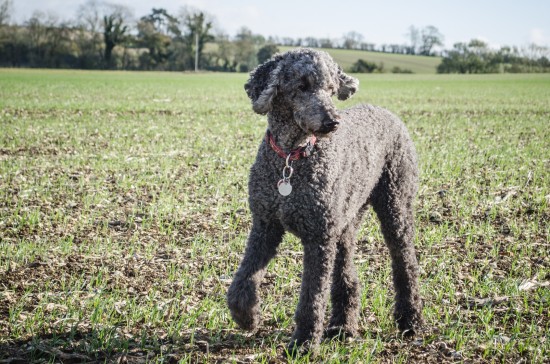
Buying a horse at an auction is a crap shoot at best, as usually there are reasons why the horse is there in the first place - reasons you might not want to find out if you take the horse home.
Generally, unless you happen to be a horse trainer or Vet, you won't have the chance to do a pre-purchase exam. In that case, all you can do is try to pick up red flags from the horses you are considering. Yes, they can be really subtle and may also be masked thanks to drugs or even the fact the horse was rested prior to you looking at it (which would not show some forms of lameness).
Start your inspection from nose to tail for any swelling or warm spots. Run your hand down all the legs (if the horse will let you and if not - red flag) and compare appearance and the feel of the left and the right. You might find a bowed tendon or a fluid filled knee - an indication of arthritis. Try flexing the joints if you can. If there is arthritis they won't flex too well
Now take a good look at general body condition (good, fair or poor), hair coat (sleek and shiny or dull), foot quality (well trimmed or chipped and cracked), muscle development (well formed or wasted) and attitude (bright and curious, dull and depressed or scared). Many of these things will give you an idea of how well the horse has been cared for and you need to pay close attention to them. They are things that will also tell you how much training the horse has and the amount of exercise it has had.
Watch the horse move - walk, trot and canter. Does he move well or are his ears pinned and tail on a switch? Does the head bob up and down (lameness)? What about his breathing? Does he roar or whistle or wheeze? Make sure you see the horse ridden under saddle to get an idea of his attitude and whether or not he and you will get along. You need to take your riding experience into consideration for this decision. And try not to over-estimate your skills or you will get a horse not suited to your level of expertise.
Take your time sizing up a potential purchase at an auction. There is no need to be in a rush. You may miss a few things, but the more horses you inspect, the better you get at it.
 Understanding Doggy Talk
Understanding Dog
Understanding Doggy Talk
Understanding Dog
 Wobbler Syndrome In Dobermans
Wobbler Syndrome
Wobbler Syndrome In Dobermans
Wobbler Syndrome
 Longevity And Health Of The English And Welsh Springer Spaniels
Longevity And Hea
Longevity And Health Of The English And Welsh Springer Spaniels
Longevity And Hea
 Common Health Problems In Pet Chickens
Common Health Pro
Common Health Problems In Pet Chickens
Common Health Pro
 Hot Or Not - What Dog Breeds And Types Are Changing In Popularity In The Uk?
Hot Or Not - What
Hot Or Not - What Dog Breeds And Types Are Changing In Popularity In The Uk?
Hot Or Not - What
Copyright © 2005-2016 Pet Information All Rights Reserved
Contact us: www162date@outlook.com